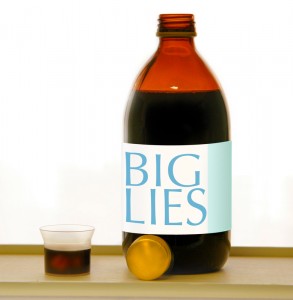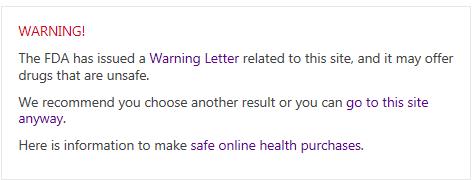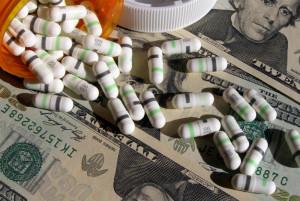by Gabriel Levitt, President, PharmacyChecker.com and Prescription Justice | Jan 22, 2016 | Drug Prices, Government, Online Pharmacies
Unfortunately, public scrutiny about high drug prices doesn’t usually lead to legislative fixes, such as passing legislation that would allow Medicare to negotiate drug prices with the pharmaceutical industry and expand the practice of safe personal drug importation so more consumers access lower prices from foreign pharmacies. On the other hand, a New York Times article – “Even Talking About Reducing Drug Prices Can Reduce Drug Prices” – suggests, well, that “talking about” drug prices can reduce them, because pharma executives get scared that if they don’t moderate drug prices, more permanent and progressive fixes will finally happen.
(more…)
Tagged with: Bernie Sanders, Big Pharma, Drug Prices, Hilary Clinton, House Committee on Government and Oversight, Marco Rubio, Martin Shkreli, Medicare Improvement and Modernization Act of 2003, Medicare Part D, New York Times
by Tod Cooperman, MD, President, PharmacyChecker.com, and Gabriel Levitt, Vice President, PharmacyChecker.com | Aug 22, 2015 | Advocacy, Government, Internet Censorship, Pharmaceutical Industry

A paid “news release” this week by the Alliance for Safe Online Pharmacies (ASOP) and LegitScript and widely disseminated by PR Newswire’s MultiView – deceitfully and incorrectly associated PharmacyChecker.com with a federal indictment involving the wholesale operations of a Canadian company. [UPDATE: After PR Newswire was informed by our attorneys of the libelous nature of the ASOP/LegitScript news release, PR Newswire removed it. The release had appeared at http://www.multivu.com/players/English/7602051-asop-doj-indictment-prescription-drugs/ ]
A former consultant to PharmacyChecker.com was, unfortunately, swept up in this indictment for an action having nothing to do with his work with PharmacyChecker.com (see our posting about the indictment) [UPDATE: The charges against this individual were dismissed on October 20].
But even though PharmacyChecker, nor any of its executives or employees, are the subject of the recent indictment or even mentioned in it, ASOP and LegitScript, who we see as sharks for Big Pharma and Big Pharmacy, could not resist throwing a public relations party, which we believe is aimed at manipulating the media and reporters, government, and worse – consumers! It appears that they spent a lot of money on a PR firm, ECI Communications, to put together and disseminate lies about PharmacyChecker.com and misleading information about international online pharmacies.
Want proof? After reading ASOP and LegitScript’s deceitfully misleading news release, a writer at the publication Medicine Marketing & Media was apparently duped into writing on Wednesday that PharmacyChecker was being indicted! After we contacted that publication about the inaccuracy, we were swiftly given an apology, the article was corrected, and the following statement posted: “CORRECTION: An earlier version of this story incorrectly listed PharmacyChecker.com as a defendant. PharmacyChecker.com is not a defendant in the case.
A renowned expert in First Amendment Law considers the news release “libelous” and ASOP, LegitScript, and ECI have been asked to take it down. PR Newswire has also been asked to remove it, as it appears to violate PR Newswire’s own guidelines regarding libelous content and this certainly doesn’t help their existing reputation for distributing “low quality content.” However, perhaps due to the enormous funding behind these groups, they have yet to make any attempt to correct the situation. We’ll see how much they care about the truth by their actions.
It’s important to keep in mind who these groups are. ASOP’s members and funders include large pharmaceutical companies and the National Association of Chain Drugstores. To protect their bottom lines, these companies and ASOP lobby congress and federal agencies, such as the FDA, to try to curtail your access to much more affordable and safe medication from outside the U.S. In fact, ASOP is actually located in the offices of the government relations and communications consulting firm FraegreBD, where ASOPs executive director, also happens to be a Vice President. And ECI Communications is a PR firm which does extensive business for U.S. pharmaceutical companies. Of course LegitScript.com happens to be a founding member of ASOP. Can we trust LegitScript.com or ASOP? Well, you already know who ASOP works for, right? On the other hand, much of LegitScript.com’s income is from a contract with the FDA for $5.2 million. That’s not bad in and of itself but, if that money is being used to spread misinformation to U.S. consumers and lobby congress and maybe even the FDA itself, then that stinks.
The truth is that American consumers are buying medication from outside the U.S., five million of them each year, because many of them can’t afford prices in the U.S. Since 2003, PharmacyChecker.com has been working hard to publish information that helps Americans find safe and affordable medication from these pharmacies. Yet it seems the only safe online pharmacy to ASOP is one that is approved by LegitScript.com, which in turn believes that every pharmacy outside the U.S. that sells into the U.S. including licensed pharmacies in Canada, are not “legitimate” or are “rogue.”
ASOP’s and LegitScript’s vision of “legitimacy” is a nightmare for Americans! Thirty-five million Americans don’t fill a script each year because of cost. A safe online pharmacy is not safe for a consumer who can’t afford the medications it sells. ASOP, LegitScript, the NABP, FDA, etc., can’t wish away the fact that safe international online pharmacies are a lifeline for many American consumers. Scaring these Americans away from safe pharmacy options with misleading and false information means that more Americans will go without their prescribed medications. There is nothing “safe” or “legit” about that.
Tagged with: Alliance for Safe Online Pharmacies, ASOP, Big Pharma, consumers, indictment
by Gabriel Levitt, President, PharmacyChecker.com and Prescription Justice | Aug 10, 2015 | FDA, Medication non-adherence, Online Pharmacies, Personal Drug Importation
Last week, Bing announced a new effort to use its search engine to warn consumers about threats from “fake” online pharmacies. The big problem is that at least some of the online pharmacies they list are not fake, but represent very real, licensed pharmacies, ones that require valid prescriptions and have been safely helping Americans afford medication for years. We know this because these pharmacies have been carefully evaluated, inspected, and monitored by us at PharmacyChecker.com, and meet high standards of pharmacy practice. See our standards: http://www.pharmacychecker.com/verification_program_guide_and_standards_1_3.pdf.
The online pharmacies targeted by Bing, which are approved in our program, are all located outside the U.S. Curtailing online access to lower cost and safe foreign medication using scare tactics is a strategy employed by the pharmaceutical industry. Indeed, Bing’s action seems to have a lot to do with stopping safe personal drug importation and will recklessly alarm Americans so they don’t buy more affordable medication from other countries.
Here is the warning which appears when a consumer’s Bing search results include links to one of these online pharmacies and they try to click on the link to that online pharmacy:

To choose the pharmacies it targets, Bing is relying on a list of online pharmacies which have received warning letters from the FDA. But, in at least several cases, these warning letters, which you can find on the FDA’s website, do not indicate a pharmacy to be fake, nor do they pertain to sales of counterfeit or adulterated medications, nor to any problems with the pharmacy meeting good standards of practice. Instead they relate to 1) sales of lawfully manufactured generic versions of drugs that are still on patent in the U.S., and 2) medications that are approved in Canada but not in the U.S. We will examine each of these letters fully over the next week, but our initial review indicates that these issues have been addressed by the online pharmacies in our Verification Program that received the letters.
The genesis of Bing’s action, which is most likely coordinated with the FDA, comes from the scare tactics about foreign medications conceived by pharmaceutical companies and their lobbying largesse. Why else would Bing decide to target only online pharmacies when many other pharmacies, pharmaceutical companies, medical device manufactures, and dietary supplement distributors have also received FDA warning letters for various infractions, yet Bing does not target them with its pop-up warning?
Bing’s actions would be great if the websites it is targeting were all fake or rogue online pharmacies, but they are not. When consumers see Bing’s warning, they will likely do one of three things:
- Keep searching for another online pharmacy that charges a price they can afford. They may find one of the tens of thousands of rogue pharmacy websites that don’t require a prescription (but are not included on FDA’s new list) and buy from that one. Then they are far more likely to end up with a counterfeit drug.
- Go to their local big chain pharmacy and pay hundreds if not thousands of dollars more for their prescribed medication. The Warning has a link to “safe online health purchases” but those take you to U.S. online pharmacies only, which are often the websites of the big chain pharmacies!
- Not take their prescription medication at all. Thirty-five million Americans each year already forgo prescribed medication due to cost.
These are horrible outcomes. Yes, warning Americans about rogue online pharmacies is good public policy. But leading Americans away from safe personal drug importation will just lead to fewer people getting medications they need, more Americans choosing between food and medicine, and larger profits for the big drug companies.
For those interested in a full policy analysis of FDA’s current campaign, please see our report called: “Online Pharmacies, Personal Drug Importation and Public Health.”
Tagged with: Big Pharma, Bing, FDA, international online pharmacies, PharmacyChecker Verification Program, rogue online pharmacies, search engines





